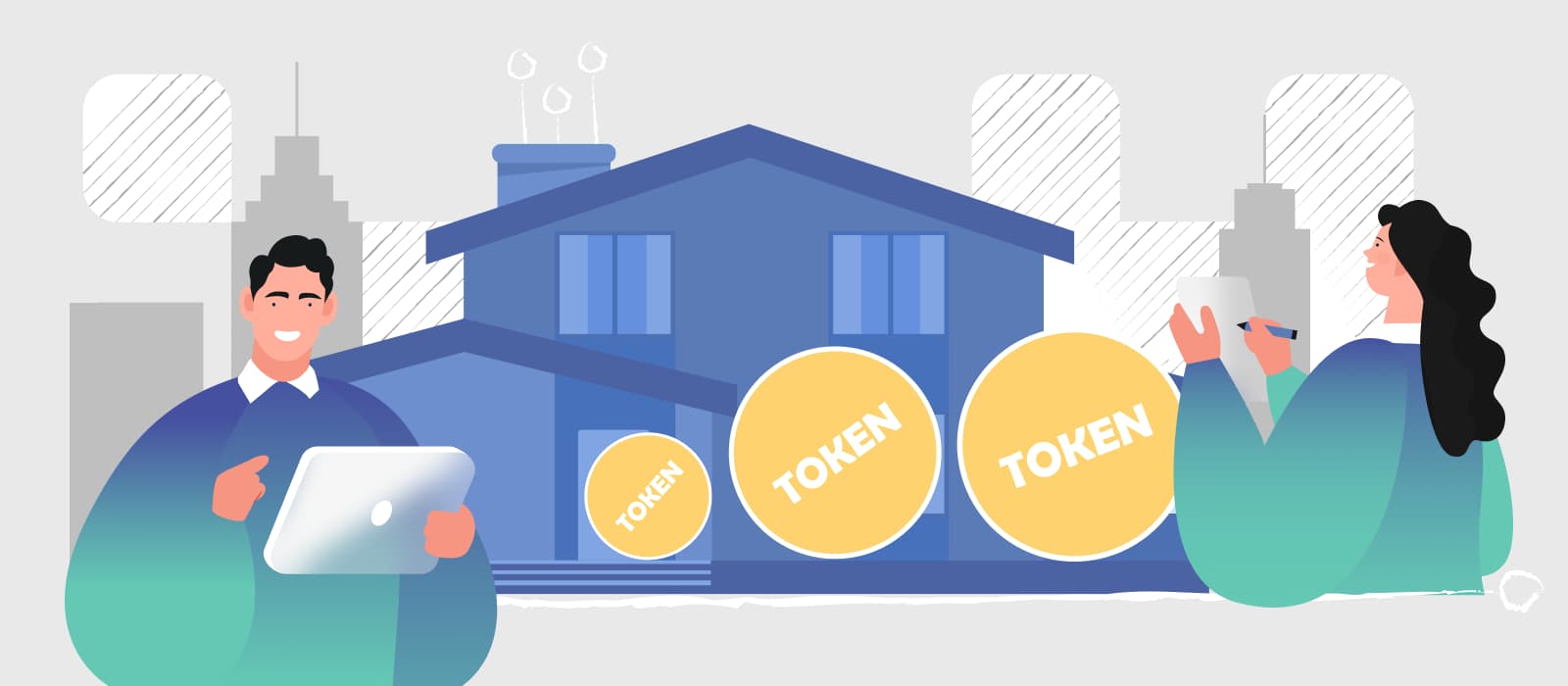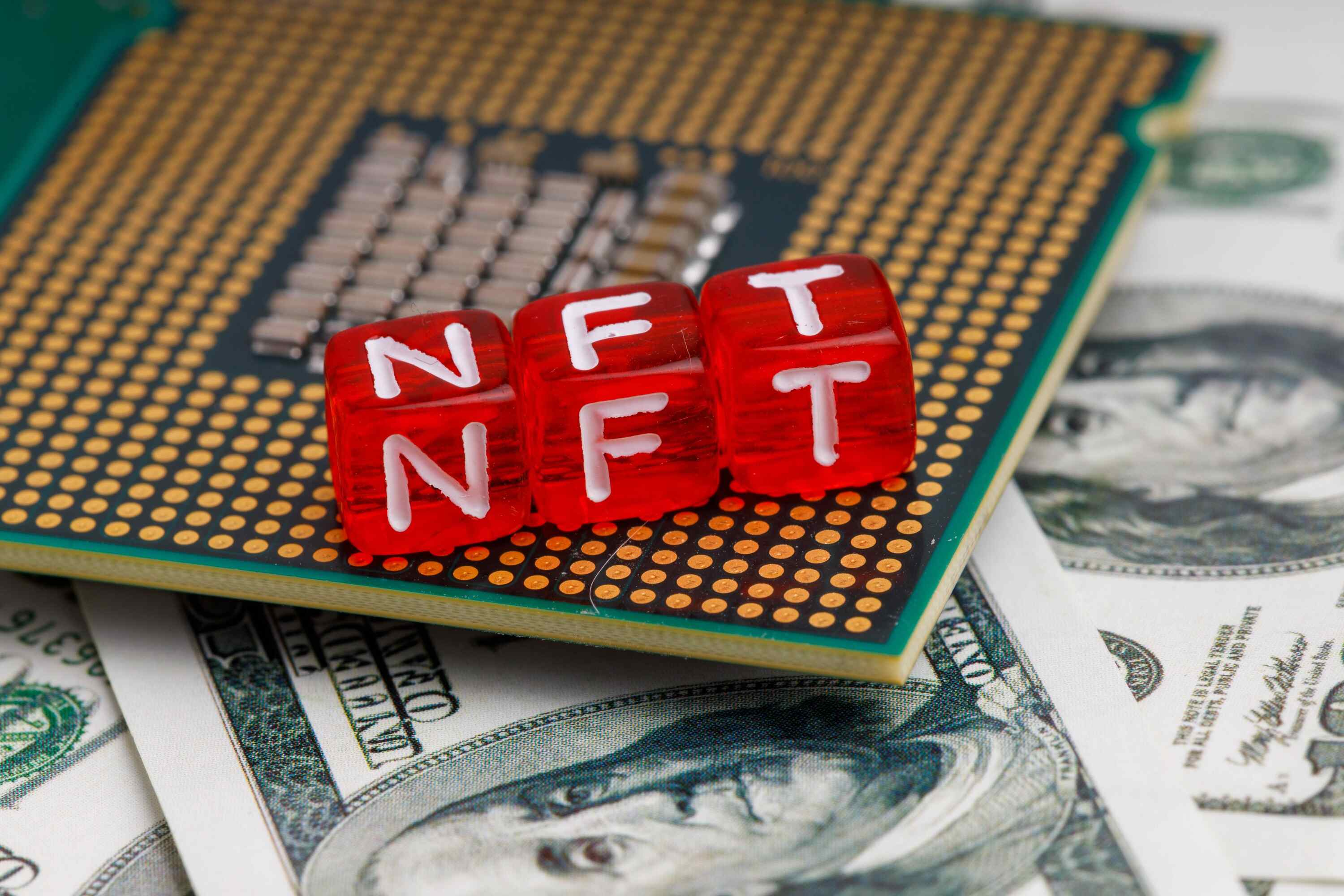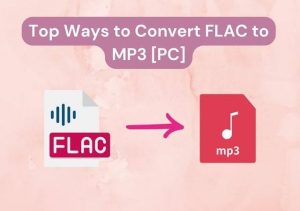Introduction
Real estate has long been considered a stable and lucrative investment option. However, the traditional methods of investing in real estate can often pose challenges for both investors and property owners. Fortunately, the emergence of tokenization has revolutionized the real estate industry, providing investors with a new and innovative way to participate in this asset class.
Tokenization refers to the process of converting real-world assets, such as real estate properties, into digital tokens on a blockchain. Each token represents a fractional ownership share of the underlying asset. This groundbreaking approach offers numerous benefits and opportunities for both investors and property owners.
With real estate tokenization, investors can gain exposure to real estate assets with smaller investment amounts, enabling greater diversification within their portfolios. Moreover, tokenization provides liquidity to traditionally illiquid assets, as tokens can be easily bought, sold, and traded on blockchain platforms.
The process of real estate tokenization involves the creation of a security token offering (STO), which is a type of fundraising mechanism similar to an initial public offering (IPO) but conducted on a blockchain. The tokens issued through an STO represent fractional ownership in the real estate asset, entitling investors to receive income from rents or profits from the sale of the property.
However, despite the numerous advantages, real estate tokenization is not without its challenges. The industry is still in its early stages, and there are regulatory and legal considerations that must be addressed. Additionally, the adoption of blockchain technology and the understanding of tokenized assets need to be further developed in order to reach wider acceptance.
Nevertheless, real estate tokenization has already started making waves in the industry. Notable examples include the tokenization of luxury properties, commercial buildings, and even real estate investment trusts (REITs). As the technology evolves and regulations become more defined, it is expected that tokenization will continue to disrupt and transform the real estate market.
In this article, we will explore the concept of real estate tokenization in greater detail. We will delve into the benefits, workings, and challenges of tokenizing real estate assets. Additionally, we will examine real-world examples and discuss the future prospects for this innovative approach to investment in the real estate market.
What is Tokenization?
Tokenization is a process that involves converting real-world assets into digital tokens on a blockchain. In the context of real estate, tokenization allows investors to own fractional shares of a property represented by these tokens. Each token represents a specific portion of the asset’s value, such as a percentage of ownership or the right to a portion of the property’s income.
The tokens are typically created using blockchain technology, which provides a decentralized and transparent ledger for recording and verifying transactions. This allows for secure and immutable ownership records, reducing the need for intermediaries such as brokers or agents.
Real estate tokenization offers many advantages over traditional investment methods. Firstly, it provides greater accessibility to the real estate market. With tokenization, investors can participate in real estate investments with lower entry barriers, as they can acquire fractional shares of high-value properties. This enables smaller investors to diversify their portfolios and gain exposure to real estate assets that were once exclusive to wealthy individuals or institutional investors.
Secondly, tokenization enhances liquidity in the real estate market. Previously, real estate investments were illiquid, making it time-consuming and difficult to buy or sell properties. With tokenization, investors can trade their tokenized assets on blockchain platforms, allowing for quicker transactions and potentially unlocking the value of their investments.
Moreover, tokenization brings transparency and efficiency to the real estate industry. The blockchain technology used in tokenization provides a decentralized and tamper-proof ledger, ensuring that ownership records and transactions are transparent and verifiable. This reduces the need for extensive paperwork and reliance on intermediaries, streamlining the investment process.
Finally, tokenization opens up opportunities for fractional ownership and collaborative investments. Investors can own a fraction of multiple properties, spreading their risk and diversifying their portfolio. Additionally, tokenization paves the way for new investment models, such as real estate investment trusts (REITs), where multiple investors pool their resources to invest in larger properties.
Overall, tokenization represents a fundamental shift in the way real estate assets are owned, traded, and invested in. It democratizes access to the market, provides liquidity, enhances transparency, and improves the efficiency of transactions. As blockchain technology continues to advance and regulatory frameworks evolve, the adoption of real estate tokenization is likely to grow, offering new possibilities for investors and revolutionizing the real estate industry.
Real Estate Tokenization
Real estate tokenization is the process of converting physical real estate assets into digital tokens on a blockchain. These tokens represent fractional ownership or rights to the underlying property. This innovative approach allows individuals to invest in real estate with lower barriers to entry and provides property owners with increased liquidity.
Through real estate tokenization, fractional ownership shares are created, enabling investors to purchase a portion of a property. Each token represents a specific percentage of ownership, which entitles the investor to a proportional share of the property’s income and potential profits upon sale.
Real estate tokenization offers several advantages for both investors and property owners. For investors, tokenization provides access to a diversified portfolio of real estate assets without the need for large amounts of capital. Fractional ownership allows individuals to spread their investments across multiple properties, reducing risk and increasing flexibility.
Furthermore, real estate tokenization increases liquidity in the market. Traditionally, real estate investments have been illiquid, with long holding periods and limited options for selling or exiting investments. Tokenization changes this dynamic by enabling investors to trade their tokens on blockchain platforms, offering a more efficient and accessible marketplace for buying and selling fractional ownership shares.
For property owners, tokenization allows them to tap into new pools of capital and unlock the value of their assets. By tokenizing a property, owners can attract a larger pool of potential investors, including those who may not have had the means to invest in real estate previously. This broader demand can result in increased property values and improved liquidity for the asset.
Real estate tokenization also streamlines the investment process and reduces transaction costs. By leveraging blockchain technology, transactions can be executed more quickly and securely, eliminating the need for intermediaries and associated fees. Additionally, the transparent nature of blockchain ensures that ownership records are accurate and immutable, reducing the risk of fraud or disputes.
Overall, real estate tokenization provides a transformative solution for both investors and property owners. It brings improved accessibility, liquidity, and efficiency to the real estate market, opening up new opportunities for investment and unlocking the value of properties. As technology continues to evolve, real estate tokenization is poised to revolutionize the way real estate assets are bought, sold, and managed.
Benefits of Tokenizing Real Estate
Tokenizing real estate assets offers a range of benefits that revolutionize the way investments in this asset class are made. From increased accessibility to enhanced liquidity, here are some of the key advantages of real estate tokenization:
- Increased Accessibility: Real estate tokenization enables fractional ownership, allowing smaller investors to participate in high-value properties that were previously out of reach. This opens up the real estate market to a broader pool of individuals, democratizing access and diversification.
- Liquidity: Traditional real estate investments can be highly illiquid, requiring significant time and effort to buy or sell properties. With tokenization, investors can trade their fractional ownership shares on blockchain platforms, unlocking liquidity and facilitating quicker transactions.
- Diversification: Tokenization allows investors to own fractional shares of multiple properties, reducing risk and increasing portfolio diversification. This enables individuals to spread their investments across different asset types, geographic locations, and property sizes.
- Lower Entry Barriers: Real estate tokenization eliminates the need for large capital investments, making it more accessible for individuals with limited funds. It provides an opportunity for smaller investors to participate in the potentially lucrative real estate market.
- Efficiency and Cost Savings: Blockchain technology streamlines the investment process by removing intermediaries and automating various aspects of transactions, resulting in cost savings. Additionally, smart contracts can be utilized to automate rent collection and distribution of income, reducing administrative burdens.
- Transparency and Security: Blockchain ensures transparent and auditable ownership records, eliminating the risk of fraudulent transactions. Immutable records provide certainty in property ownership, reducing disputes and improving confidence for both investors and property owners.
- Global Reach: Tokenization transcends geographical boundaries, enabling investors from around the world to participate in real estate opportunities. This opens up new avenues for cross-border investments and diversification.
The benefits of real estate tokenization are not limited to investors alone. Property owners can also take advantage of these advantages by attracting a larger pool of potential investors, increasing the liquidity of their properties, and potentially unlocking more value in their assets.
Overall, real estate tokenization represents a significant shift in the real estate industry, offering increased accessibility, liquidity, and efficiency. As blockchain technology continues to mature and regulatory frameworks evolve, the adoption of real estate tokenization is expected to grow, bringing about further benefits for both investors and property owners.
How Does Real Estate Tokenization Work?
Real estate tokenization involves several key steps that transform physical property assets into digital tokens on a blockchain. Here is an overview of the process:
- Selection of Property: The first step is to identify a suitable real estate property for tokenization. This could be residential, commercial, or even land.
- Valuation and Due Diligence: Once a property is chosen, a thorough valuation is conducted to determine its market value. This is followed by due diligence to assess the property’s legal and regulatory compliance, ownership history, and potential risks.
- Legal and Regulatory Compliance: To ensure compliance with applicable laws and regulations, the necessary legal framework must be put in place. This may involve working with legal professionals to draft the required documents, such as token offering agreements and property ownership agreements.
- Creation of Tokens: Tokens representing fractional ownership shares are created on a blockchain. Each token represents a specific percentage of ownership or rights to the property. Smart contracts, which are self-executing contracts with predefined conditions, may be utilized to automate the token creation process.
- Token Offering: An offering is conducted to sell the tokens to investors. This can take the form of a security token offering (STO), where the tokens are sold to accredited investors, or a crowdfunding campaign open to the public within regulatory limits.
- Asset Management: Once the tokens are sold, the property is managed and maintained as before. The income generated by the property, such as rental income, can be distributed to token holders according to their ownership percentage.
- Trading on Blockchain Platforms: Tokenized real estate assets can be traded on blockchain platforms, allowing investors to buy, sell, or transfer their ownership shares. These platforms provide a transparent and secure environment for trading, with transaction records stored on the blockchain.
Throughout the process, blockchain technology plays a crucial role in ensuring transparency, security, and efficiency. Blockchain provides a decentralized ledger that records and verifies ownership, transactions, and other relevant information. This eliminates the need for intermediaries and provides an immutable and auditable record of ownership.
It is important to note that real estate tokenization is subject to legal and regulatory requirements, as securities laws apply to token offerings. Compliance with these regulations is essential to ensure investor protection and maintain market integrity.
Overall, real estate tokenization works by transforming physical real estate assets into digital tokens, enabling fractional ownership and creating a new ecosystem for investors to participate in the real estate market.
Risks and Challenges of Tokenizing Real Estate
While real estate tokenization offers numerous benefits, it is important to acknowledge the risks and challenges associated with this innovative approach. Here are some of the key risks and challenges of tokenizing real estate:
- Regulatory Compliance: Tokenized real estate assets need to comply with a complex web of securities regulations. Regulatory oversight is necessary to protect investors and ensure transparency and fairness in the market. Compliance with these regulations can be challenging, as the regulatory landscape for blockchain-based securities is still evolving.
- Market Volatility: As with any investment, real estate token values are subject to market fluctuations. These price fluctuations can be influenced by factors such as economic conditions, changes in real estate market conditions, and investor sentiment. It is essential for investors to carefully assess the risks and potential rewards before investing in tokenized real estate.
- Liquidity Considerations: While tokenization enhances liquidity compared to traditional real estate investments, it does not guarantee instant and unlimited liquidity. The ability to sell or transfer tokenized assets depends on the demand and market conditions. Illiquidity may arise if there is a lack of buyers or limitations on trading platforms.
- Technological Risks: Blockchain technology, although robust, is not immune to technical issues or vulnerabilities. Cybersecurity threats, software bugs, or network disruptions could potentially compromise the integrity of the blockchain and impact investor holdings and transactions. It is crucial to implement robust security measures and protocols to mitigate these risks.
- Market Acceptance and Education: The concept of tokenized real estate is still relatively new, and widespread market acceptance may take time. Education and awareness about the benefits, risks, and mechanics of real estate tokenization are necessary for both investors and property owners. Building trust and confidence in the market is essential for its long-term sustainability.
- Smart Contract Reliability: Smart contracts, which automate transactions and ownership transfers, rely on the accuracy of the code and the execution of predefined conditions. Any flaws or vulnerabilities in smart contracts could lead to unintended consequences or disputes. Thorough testing and auditing of smart contracts are essential to mitigate these risks.
- Legal and Ownership Complexities: Tokenizing real estate may involve navigating complex legal and ownership structures. Ensuring clear and enforceable property rights, dealing with multiple stakeholders, and addressing cross-border legal considerations can pose challenges. Legal expertise is crucial in structuring tokenized real estate offerings and addressing potential legal risks.
Despite these risks and challenges, the potential benefits of real estate tokenization continue to drive its adoption and innovation in the industry. As regulatory frameworks mature, market practices evolve, and technology advances, it is expected that many of these challenges will be addressed, paving the way for a more robust and efficient tokenized real estate market.
Examples of Real Estate Tokenization
Real estate tokenization has gained traction in recent years, with various notable examples demonstrating the transformative potential of this innovative approach. Here are a few examples of real estate tokenization in action:
- St. Regis Aspen Resort: In 2018, a luxury hotel, the St. Regis Aspen Resort in Colorado, was tokenized through a partnership between the hotel owner and a real estate tokenization platform. Tokenizing the property allowed investors to purchase digital tokens representing fractional ownership shares, granting them access to the hotel’s revenue and potential appreciation.
- Blockchain Plaza: A commercial office building located in Zurich, Switzerland, called Blockchain Plaza, was tokenized in 2019. The tokenization process allowed fractional ownership of the building, reducing entry barriers and providing investors with exposure to the property’s income potential. This example showcased the use of tokenization to unlock liquidity in the commercial real estate space.
- Real Estate Investment Trusts (REITs): Traditional real estate investment trusts (REITs) have also explored tokenization as a means of enhancing liquidity and accessibility. Tokenized REITs enable individuals to invest in a diversified portfolio of real estate assets through fractional ownership tokens. These tokens can be traded on blockchain platforms, offering investors increased flexibility and liquidity.
- Student Accommodation Properties: Tokenization has also been used to enable investments in student accommodation properties. By tokenizing these assets, investors can gain exposure to this growing market sector with smaller investment amounts. Tokenization provides liquidity advantages, allowing investors to buy and sell their tokenized shares without the traditional challenges associated with property ownership.
- PropTech Innovation: Real estate tokenization is not limited to physical properties alone. Some innovative projects are focused on tokenizing intellectual property within the real estate industry. For example, blockchain-based platforms have emerged, allowing the tokenization of real estate investment strategies, mortgage-backed securities, and data used in property valuations.
These examples represent a small fraction of the growing number of real estate tokenization initiatives. They highlight the potential for fractional ownership, liquidity enhancement, and market accessibility that this innovative approach offers.
It is important to note that while real estate tokenization has shown promise, each investment opportunity should be thoroughly researched and considered. Investors should evaluate factors such as the underlying asset, the project’s team, the regulatory framework, and the credibility and track record of the tokenization platform.
As the real estate industry continues to embrace blockchain technology and regulatory frameworks evolve, we can expect to see an increasing number of tokenized real estate projects emerge, providing investors with new opportunities and transforming the way real estate assets are financed, owned, and traded.
The Future of Real Estate Tokenization
The future of real estate tokenization is promising, as this innovative approach continues to gain traction and evolve within the industry. Here are some key factors that contribute to the bright prospects of real estate tokenization:
- Increased Market Adoption: As more successful real estate tokenization projects emerge, market acceptance and adoption are expected to grow. Investors and property owners are recognizing the advantages of fractional ownership, increased liquidity, and improved accessibility offered by tokenization.
- Advancements in Technology: Blockchain technology, the foundation of real estate tokenization, continues to advance. New developments in scalability, interoperability, and smart contract capabilities will enhance the efficiency, security, and usability of tokenized real estate platforms.
- Regulatory Clarity: Regulatory frameworks governing tokenized securities and digital assets are still evolving. However, as regulators gain a deeper understanding of blockchain and its potential, they are working to establish clearer guidelines and regulations. Greater regulatory clarity will encourage institutional participation and create a more robust and secure environment for real estate tokenization.
- Global Investment Opportunities: Real estate tokenization breaks down barriers and enables cross-border investment opportunities. Investors can access real estate assets worldwide, diversifying their portfolios and potentially benefitting from new markets and emerging economies.
- Increased Investor Protection: With proper regulatory oversight, tokenization has the potential to enhance investor protection through transparent ownership records, automated compliance, and improved liquidity. This can result in increased confidence among investors, attracting more participants to the market.
- Integration with Traditional Finance: The convergence of tokenization and traditional financial systems is likely to occur in the future. As regulated financial institutions and established players in the real estate industry embrace tokenization, the integration of traditional investment structures and tokenized assets will drive wider adoption and acceptance.
- Expansion into Other Asset Classes: While real estate has been at the forefront of tokenization, this innovative approach can extend to other asset classes as well. Tokenization has the potential to transform industries such as art, collectibles, and infrastructure, providing increased liquidity and fractional ownership opportunities.
The future of real estate tokenization will depend on the collaboration and efforts of industry players, regulators, and technology providers. As the technology matures, regulatory frameworks evolve, and market participants become more comfortable with blockchain-based investments, real estate tokenization is expected to shape the future of the real estate industry.
However, challenges and risks remain, such as legal complexities, technological vulnerabilities, and market uncertainties. Overcoming these challenges will require continued innovation, collaboration, and ongoing dialogue between stakeholders.
Ultimately, real estate tokenization has the potential to create a more inclusive, efficient, and liquid real estate market, unlocking new avenues for investment and transforming traditional models of property ownership and investment.
Conclusion
Real estate tokenization has emerged as a transformative force in the real estate industry, offering numerous benefits and opportunities for investors and property owners alike. By converting physical assets into digital tokens on a blockchain, real estate tokenization allows fractional ownership, increased liquidity, and improved accessibility to the market.
Through tokenization, investors can gain exposure to high-value properties with lower entry barriers, enabling diversification and potential returns. The liquidity of tokenized assets allows for quicker transactions and unlocks value that was previously tied up in illiquid real estate investments.
However, real estate tokenization is not without its challenges. Regulatory compliance, market volatility, and technological risks pose considerations that require careful navigation. Furthermore, widespread adoption and market acceptance will take time, necessitating education and awareness about the benefits and mechanics of real estate tokenization.
Despite these challenges, the future of real estate tokenization looks promising. Advancements in technology, the evolution of regulatory frameworks, and increasing investor awareness are driving the growth and adoption of tokenization. As real estate tokenization continues to mature, it has the potential to revolutionize the way real estate assets are bought, sold, and invested in.
It is important for investors, property owners, and industry participants to stay informed and engaged in this evolving landscape. Collaborative efforts among stakeholders, including regulators, technology providers, and market players, will be crucial in shaping the future of real estate tokenization.
As real estate tokenization becomes more integrated with traditional finance, expands into other asset classes, and gains wider market acceptance, it has the potential to democratize access, enhance transparency, and transform the real estate investment landscape.

























